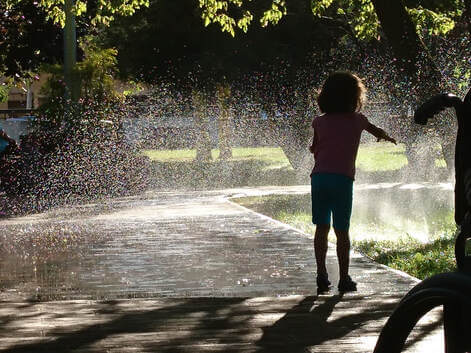Gardening in Summer
Gardening When the Heat is On
Many customers want to know if it’s safe to plant when the temperatures rise outside. The answer is absolutely! There are a few precautions you want to take to lessen the chance of stressing your plants:
1) Plant early in the morning or late in the day when the sun is low, or wait for a cloudy day if you can.
2) Keep the roots hydrated. Water well and remove plants from pots immediately before planting – don’t allow them to sit out exposed to the heat and sun.
3) When planting trees & shrubs, fill the planting hole with water from your hose before planting. This insures that the roots will be fully hydrated. The planting hole should be dug in advance and the depth should be the same as the root ball of the tree or shrub, and twice as wide. It is always recommended to amend your native soil with compost or gardening soil that is rich in minerals. Most native soil in our area is high in clay. Adding in compost will improve the texture and drainage of the soil and help the roots take hold better. This step greatly increases your chances of success.
Water, Water, Everywhere!
“How much should I water?” When the temperatures climb above 90, it’s nearly impossible to overwater your new plantings, especially tender new trees and shrubs that have just been planted this season. The biggest mistake homeowners make is relying on their irrigation systems to do the watering for them. Sprinklers and irrigation systems are designed to water the top 1”-2” of soil and WILL NOT reach the rootsof your trees & shrubs. The result? Almost certain death. Always water with a hose (or a bucket). Deep water new plantings 3 times a week for the first season until established.
- Water your annuals every day when the temps rise above 90,
- Water Hanging baskets 1 to 2x a day til the water runs out the bottom. These are especially vulnerable since the wind and the heat play a factor in the drying out process.
- Vegetables – water once a day – early morning. Do NOT over-water tomatoes. They can take the heat. Avoid watering late at night – this can cause powdery mildew and other fungus issues. When watering vegetables, water the soil, not the leaves.
Remember – when the temperatures go up, up, up and you’re becoming parched, so are your plants. Please remember to be generous with your watering routine. Your plants will thank you for it.

